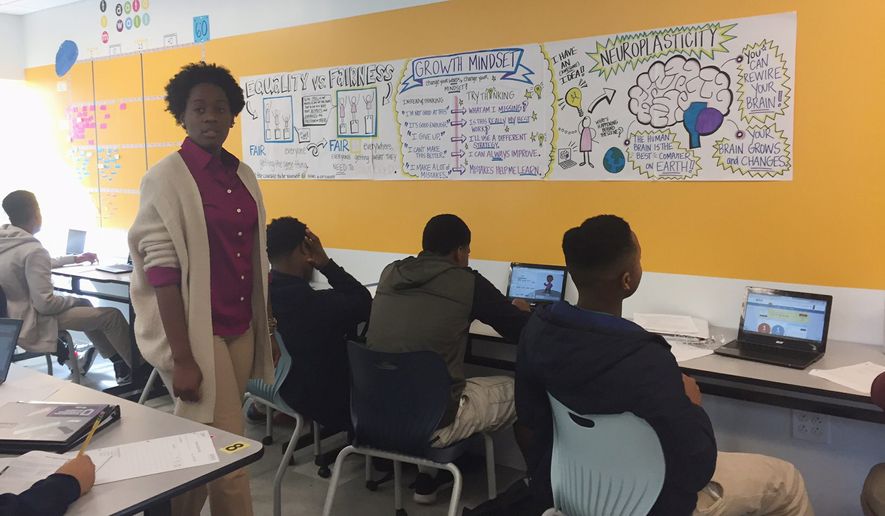OPINION:
Money talks and the NAACP walks away from its mission to ensure educational equality for black kids.
This month, the nation’s oldest civil rights group passed a resolution supporting a moratorium on the expansion of charter schools — those publicly funded, privately run educational institutions that provide a lifeline for black and Latino children looking to escape failing, dangerous and decrepit existing public schools.
Charters have been one of a few bright spots in a lost generation of American education. First established by state law in the early 1990s, charters now educate roughly 6 percent of the country’s public school students, with much higher rates in urban centers. Nearly one in four Los Angeles public school students attend charters, up from roughly 9 percent in 2008. The number of charter students in New York has quintupled to more than 100,000 in the past seven years. Charters educate a majority of public school students in New Orleans post-Hurricane Katrina.
The quality discrepancy between charter and traditional schools is stark. A Stanford study last year examined 41 urban areas and concluded that black students in charters gained an average of 36 extra days in math learning and 26 in reading each year. Black students in poverty fared even better. In New York City, black and Latino charter students scored 73 percent higher than their district-run counterparts. Some charters like Urban Prep send 100 percent of their graduates to college.
No wonder polls show that roughly three-quarters of black parents favor charters and the nationwide wait list for acceptance is more than 1 million and growing.
But here’s the rub: Charters threaten the union monopoly on education. Most charters are non-union. They grow at the expense of failing union-run public schools, union jobs and union dues. The result is a threat to union power and unions’ political agenda.
How can unions stop this slide? One way is to get black leaders to disavow the progress. Specifically, by paying off black civil rights groups like the NAACP and Congressional Black Caucus to sell out black kids by opposing the civil rights issue of today: access to quality schools.
Labor Department filings shows that labor unions have given the NAACP and its affiliates at least $3 million since 2010. The two major national teachers unions, the American Federation of Teachers (AFT) and National Education Association (NEA), gave the NAACP $265,000 last year, significantly increasing their contributions between 2010 and 2014. This is conceivably a “pay to play” investment. The number would be closer to zero if the black leadership were bucking these unions on the charter issue.
Teachers unions have given even more to the Congressional Black Caucus (CBC), the legislative wing of black leadership that influences black civil rights groups’ agendas. Labor Department filings show that the national AFT and NEA have given the CBC Foundation and CBC Institute $911,000 since 2010. Open Secrets campaign donation data shows that the AFT and NEA have given CBC members $253,000 and $206,000, respectively, this cycle.
Of course, civil rights groups offer justification for their opposition to charters to try to hide the fact they are in the pocket of unions. The NAACP cited a lack of “transparency and accountability standards.” But these teacher union talking points are a bit rich. The truly unaccountable are the unionized teachers who can’t be fired. It’s the factory schools that can’t be closed while they turn out graduates who can’t qualify for jobs. One-hundred-and-sixty black leaders wrote that these false anti-charter arguments “limit black students’ access to some of the best schools in America and deny black parents the opportunity to make decisions about what’s best for their children.”
The sad irony here is that the NAACP, which helped desegregate schools in the 1950s, is essentially endorsing a separate and unequal minority educational status quo. It is one that is partially responsible for black poverty and crime.
Black civil rights groups could keep union money without selling out black kids by taking a page from the playbook of former California Assembly Speaker Jesse Unruh, who advised, “If you can’t eat their food, drink their booze, screw their women, take their money and then vote against them you’ve got no business being up here.” But for now, black civil rights groups are content saying that money matters and black students’ lives don’t.
• Richard Berman is the president of Berman and Company, a public affairs firm in Washington, D.C.




Please read our comment policy before commenting.